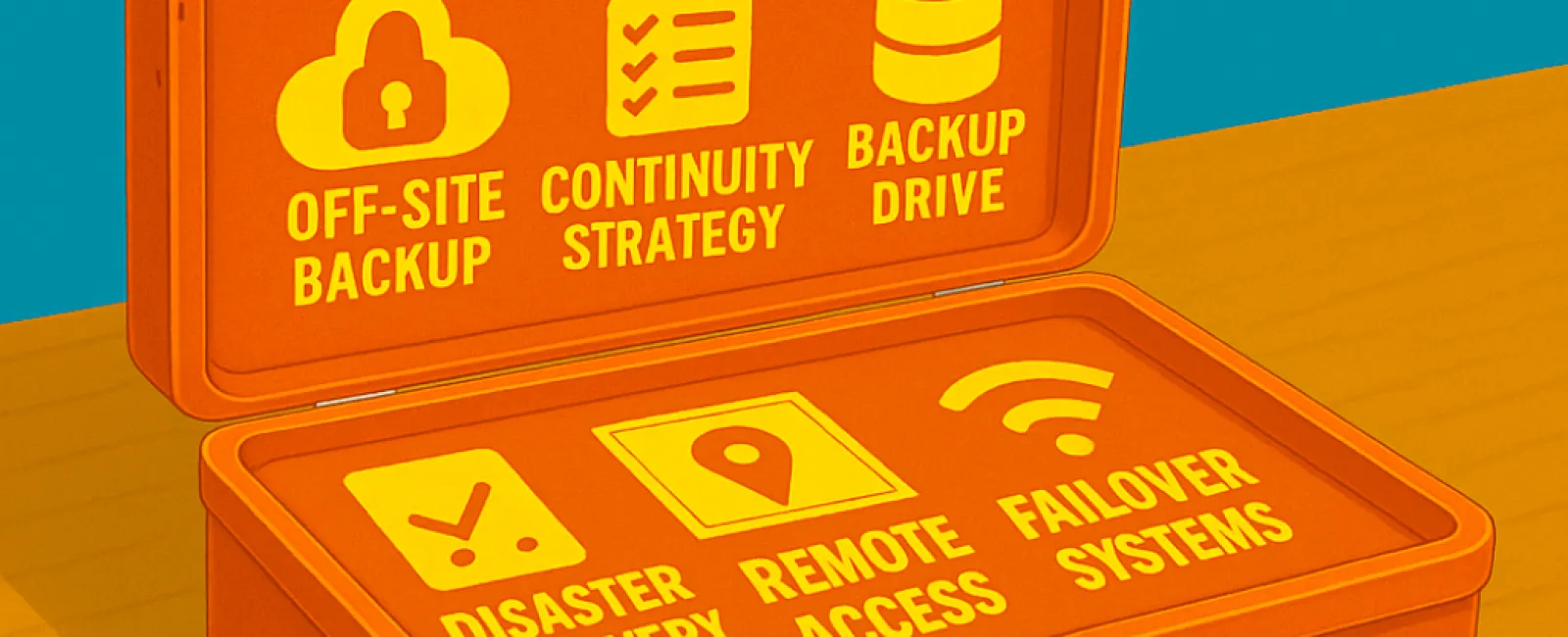July 28, 2025
Unexpected power failures, cyberattacks, equipment malfunctions, and natural calamities often strike without warning, posing severe threats to small businesses. Many believe that simply having backups suffices, but restoring files alone doesn't guarantee business continuity. If your systems are inaccessible, remote work unsupported, or communication with your team and clients disrupted, even brief interruptions can lead to prolonged setbacks. Partnering with a dependable IT provider means more than just backups—it means having a comprehensive strategy to keep your business thriving under any circumstance.
Backups Alone Won't Cut It—You Need a Robust Continuity Strategy
Backups are critical, no doubt. However, they form just one piece of the puzzle. What truly safeguards your business is a proactive business continuity plan designed to maintain operations during and after disruptions.
When systems fail, files become unreachable, or your physical workspace is compromised, relying solely on local backup files offers limited relief. Without a swift and clear recovery plan, your business risks significant losses in revenue, reputation, and regulatory compliance.
Understanding the Difference: Backups vs. Business Continuity
Many businesses confuse these two concepts:
● Backups restore your data.
● Continuity ensures your business keeps running, no matter what.
A comprehensive continuity plan addresses vital questions such as:
● How quickly can we resume operations?
● Where can our team work if the office is inaccessible?
● Which systems are essential for mission-critical tasks?
● Who is responsible for initiating the recovery process?
Key elements of such a plan include:
● Encrypted, off-site, and immutable backups
● Clearly prioritized recovery objectives (RTO/RPO)
● Preparedness for seamless remote work
● Redundant systems and automatic failover mechanisms
● Regular disaster recovery drills and testing
If your IT partner can't confidently guide you through these critical aspects, you're not truly protected—you're just fortunate so far.
Could This Happen to Your Business?
This is not just a scare tactic. These are real-world events with devastating impacts. Recent incidents include:
● Florida hurricanes forced hundreds of businesses to halt operations, especially those lacking cloud access.
● North Carolina floods destroyed on-site servers, wiping out months of critical records and invoices.
● California wildfires obliterated office buildings in the Pacific Palisades, many without any off-site recovery strategy.
● Numerous small businesses hit by ransomware attacks discovered their backups were either corrupted or untested.
Disasters don't discriminate by business size—they affect companies like yours every day.
Essential Questions You Should Be Asking Today
If disaster strikes tomorrow, will your business continue operating?
Discuss these with your IT provider:
● How quickly can we recover from a ransomware attack?
● Are backups regularly tested, and which systems are covered?
● What is the contingency plan if a flood or fire disables our office?
● Does our continuity plan meet industry compliance standards?
● Can we maintain client services if our team needs to work remotely?
If you aren't fully confident in these answers, your business may already be vulnerable.
Disasters Are Inevitable. Downtime Is Not.
While you can't prevent every outage, storm, or cyberattack, you can control how your business responds.
A reliable IT partner helps you bounce back.
A great one ensures your business never misses a beat.
Curious about your business's readiness?
Click Here or call us at 678-940-8992 to schedule your FREE 15-Minute Discovery Call, and let's safeguard your business against unexpected downtime.




